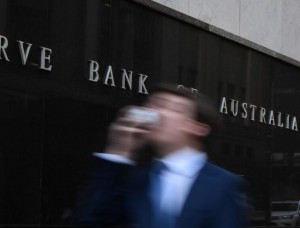There are more interesting articles, commentaries and analyst reports on the Web every week than anyone could read in a month.
Each Saturday morning I like to share some of the ones I’ve read during the week.
The weekend will be over before you know it, so enjoy some weekend reading.
Melbourne house prices: Caution urged for first-home buyers as growth slows
If you’re a first home buyer is Melbourne – it looks like the ‘Great Australian Dream’ has slipped further away.
According to an article on Domain.com.au – as growth continues to slow, the market is only getting harder for the property newbies.
Melbourne’s slowing housing market does not spell the end of high prices, especially for first-home-buyers, experts say.
The city recorded its lowest quarterly growth in five and a half years, according to Domain Group’s State of the Market report released Thursday.
House prices ticked up by just 0.1 per cent to $914,518, while unit price saw a slightly better gain of 0.7 per cent to $505,861.
Though price growth was easing, those looking to get into the market would not find it much easier, NAB chief economist Alan Oster said.
“Don’t expect to see your house or apartment or whatever you’re buying to radically fall in the next 12 to 18 months,” Mr Oster said.
He said the Australian Prudential Regulation Authority may crack down further on investor lending, but any dip in the market would be offset by owner-occupiers.
He expected prices to stay flat for the rest of the year.
Though prices were starting to steady, they were still approximately double what they were six years ago, Grattan Institute chief executive John Daley said.
“Reflecting falls in interest rates, very rapid population growth driven by migration and not enough building – particularly in the middle and inner rings to accommodate that growth,” Mr Daley said.
MEDIAN HOUSE PRICES Region Mar-18 Dec-17 Mar-17 QoQ % YoY % Inner Melbourne $1,268,000 $1,300,000 $1,292,500 -2.5% -1.9% Inner East $1,500,000 $1,551,000 $1,526,587 -3.3% -1.7% Inner South $1,352,500 $1,375,000 $1,320,000 -1.6% 2.5% North East $725,000 $730,000 $650,000 -0.7% 11.5% North West $630,750 $628,000 $570,000 0.4% 10.7% Outer East $800,000 $817,500 $736,500 -2.1% 8.6% South East $655,000 $650,000 $580,000 0.8% 12.9% West $610,000 $600,000 $520,000 1.7% 17.3% Mornington Peninsula $720,500 $700,300 $652,500 2.9% 10.4% He said first-home buyers were likely to buy in areas that had ongoing growth, and stamp duty concessions have actually contributed to pushing prices up in affordable suburbs on the fringes.
“Because first-home buyers often have a leverage limit, they increase the amount they’re prepared to pay by more than the value of the stamp duty concession, so those prices have increased even more than the mere value of the grant,” he said.
Median house prices in the west edged over the $600,000 limit for first-home buyer stamp duty cuts for the first time in the last quarter, rising by 1.7 per cent to $610,000.
The area also saw the highest year on year growth across the city at 17.3 per cent.
“There’s a bit of frustration but I also understand it’s happening because of the properties we’re looking at,” Mr Gibbs said.
“There’s a good supply, but there isn’t a good supply of good quality properties.”
Hopeful first-home buyer Nick Gibbs and his girlfriend Amy Backhouse had been looking to buy in the north-east for more than a year, and had been unsuccessful at auction more than once.
House prices in the area, which included Eltham, Ivanhoe, and Heidelberg, fell slightly for the quarter – 0.7 per cent to $725,000 – but still saw strong growth of 11.5 per cent for the year.
Mr Gibbs said he was encouraged by slowing house prices.
“If we get more of an opportunity in six months to get in, that’s what we might do,” he said.
MEDIAN UNIT PRICES Region Mar-18 Dec-17 Mar-17 QoQ % YoY % Inner Melbourne $525,000 $535,000 $520,000 -1.9% 1.0% Inner East $622,500 $630,000 $600,000 -1.2% 3.8% Inner South $630,000 $621,621 $578,750 1.3% 8.9% North East $514,000 $480,000 $425,000 7.1% 20.9% North West $450,000 $430,000 $420,000 4.7% 7.1% Outer East $580,000 $555,000 $515,000 4.5% 12.6% South East $460,000 $440,000 $377,250 4.5% 21.9% West $421,500 $420,000 $382,750 0.4% 10.1% Mornington Peninsula $455,000 $450,000 $400,000 1.1% 13.8% University of Melbourne economics expert Sam Tsiaplias said saving for a deposit was a hurdle many first-home buyers could not get over, as wages had not grown at the rate of house prices.
“House prices are growing at a rate so much higher than inflation and it’s just not possible for that continue in the long run,” Dr Tsiaplias said.
Inner Melbourne, including the CBD and suburbs in the inner north and south, and the inner east, recorded the lowest growth, with both areas seeing prices drop for both the quarter and the year.
Mr Daley said though prices had come down in some of the city’s most desirable suburbs, they were still not affordable for those entering the housing market.
Read the full article here
ALP proposals would annihilate the rental market
With the budget announcement around the corner – there are many questions surrounding housing tax.
This Blog by Pete Wargent shows the statistics.
That time again
The Federal Budget is coming around again shortly, leading to all the usual debates on housing tax.
The taxes derived from housing have exploded over the past half decade, as reported last week by the ABS, largely driven by stamp duty take.
The main point of contention for the Budget is negative gearing, as it seems to be every year, with almost all commentators starting with their conclusion and working backwards from there (myself included).
Read the full article here
The CBA no longer sees RBA rate hikes this year
Will they or won’t they?
That’s number one question on everyone’s mind when it comes to interest rate rise.
But despite rumours of a rise – The commonwealth Bank says that’s now unlikely in this article on Business Insider.
The Commonwealth Bank of Australia (CBA) has pushed back the timing of when its expects the Reserve Bank of Australia (RBA) to begin lifting interest rates.
“The macro backdrop and RBA commentary indicate that the next move in interest rates is up,” says Michael Blythe, Chief Economist at the CBA.
“But new uncertainties from falling dwelling prices, funding cost pressures and tightening lending standards are set to lengthen the RBA’s patience.
“We have delayed the timing of the first RBA rate rise from November 2018 to February 2019 as a result.”
And while the CBA still expects the RBA will begin normalising policy earlier than both financial markets and many economists, it expects the subsequent tightening cycle to be “cautious and drawn out”.
“The expansion of household debt has increased the interest rate sensitivity of the Australian economy,” says Blythe.
“A 3.5% cash rate would be dangerously close to levels that could trigger some genuine household financial stress.
Policy makers are well aware of these issues.
“While the start date may be a bit later, we still put the peak cash rate at 2.5% and don’t expect to get there until 2020.”
Read the full article here
More property listings selling pre-auction
With a cooler Sydney market – more homes are being sold before their auction date.
So what does this really mean – And how can you make this work for you?
In this article for Switzer, John McGrath looks at what’s really going on.
In Sydney, more properties listed for auction are now selling prior due to cooling market conditions.
With more homes for sale, buyers have more choice and more bargaining power, so sold priors are becoming increasingly common.
During the boom when stock was tight, most vendors wanted to go through to auction and let the usual five or so registered bidders battle it out to maximise the sale price.
Today, competition has reduced to an average of one to three bidders per auction.
The instances of buyers going quiet before an auction are increasing, with their attention diverted away by more and more new stock.
These market conditions give buyers greater confidence in making pre-auction offers – often within the first week of a campaign; and vendors are more likely to consider them.
Top tips for buying prior to auction
- Ask the agent if the vendor is willing to consider pre-auction offers. If so, tell the agent you are interested in the home and you want to be included in any negotiations. Sold priors can happen quickly – often within 24 hours, so it’s important to flag your interest even before you’ve made an offer
- Let the agent know you have pre-approved finance. This is a very important signal that you’re a serious buyer
- Offer a price that is close to your walk-away figure. Vendors will only sell early in a campaign if a strong price is put forward. As with all negotiations, the vendors will assume your first offer isn’t your best so leave some wiggle room
- Do more than a verbal offer. Sign the contract and attach a cheque for the deposit. Alternatively, put your offer in writing and mention you have your finance approved
- Waive your right to a cooling off period to show you’re serious
- If your first offer is rejected, consider offering an odd amount. For example, rather than offering $860,000 or $865,000, offer $863,500. An odd amount implies that you’re close to or at your financial limit
A word of advice for sellers
In Sydney today, the best quality properties are still attracting strong demand and doing very well at auction.
If you have an A-grade property that ticks all the boxes for buyers, your agent might still recommend proceeding to auction rather than taking a strong early offer.
Don’t be afraid to do this.
It’s the A-grade properties that are still achieving hundreds of thousands above reserve.
If your agent tells you there are several buyers with similar budgets who genuinely love your home, then auction is still the best way forward.
When to accept a pre-auction offer
Before you accept a pre-auction offer, there are a few factors you have to weigh up.
You need to do a reality check on your price expectations, taking into account recent sales during your campaign and market feedback on your home.
Then you need to listen to your agent, who will use all their expertise to determine whether you should accept the offer or not.
A good agent will not let you undersell your home.
Generally speaking, it usually comes down to whether the buyer making the offer has any competition from other buyers at the same price level.
For example, say your best pre-auction offer (after some negotiating) is $1.5M.
If all other buyers are talking $1.4M-$1.45M, your agent will probably recommend you take the offer.
If you proceed to auction, the buyers will all go to $1.45M and then the best buyer will be on their own from there, with no reason to bid even close to $1.5M.
In today’s market, we expect to see many more homes selling prior.
Read the full article here
3 Childhood Behaviours Predict Success 50 Years Later
Can your childhood behaviours contribute to your success as an adult?
An article on spring.org.uk look at 3 such behaviours – and their successful results many years later.
The behaviours were linked to adult occupational success and earning more 50 years later.
Being interested in school, being a responsible student and having good reading and writing skills all predict people’s occupational success decades later, new research finds.
Even 50 years after someone had left high school, these factors still predicted if people had a more prestigious job or not.
Being a good student also predicted how much money people earned 50 years later.
Dr Marion Spengler, who led the research, said:
“Educational researchers, political scientists and economists are increasingly interested in the traits and skills that parents, teachers and schools should foster in children to enhance chances of success later in life.
Our research found that specific behaviors in high school have long-lasting effects for one’s later life.”
The study used data from 346,660 U.S. high school students first collected in 1960.
Plus 81,912 of them were followed up 11 years later and 1,952 were followed up 50 years later.
The researchers took into account all sorts of other factors like IQ, personality traits and the family’s socioeconomic status.
Dr Spengler said:
“Student characteristics and behaviors were rewarded in high school and led to higher educational attainment, which in turn was related to greater occupational prestige and income later in life
This study highlights the possibility that certain behaviors at crucial periods could have long-term consequences for a person’s life.”
Read the full article here















No comments:
Post a Comment